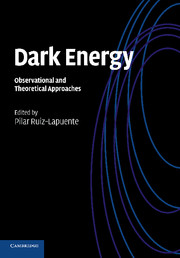Preface
Published online by Cambridge University Press: 05 July 2014
Summary
We commonly denote as dark energy the physics yet to be determined that causes the present acceleration of the universe. Dark energy is a very wide subject residing in unkowns of very different kinds, since the origin of the cosmic acceleration can be of very diverse nature. It can be linked to the presence of a new component of the universe in the form of a field with similarities to the field that causes inflation. It can be a departure of gravity from general relativity or it can be related to vacuum energy.
The importance of the subject, which involves the understanding of gravity and the present components of the universe, will make it a very active field of research in the next decades.
Many experiments are planned to try to identify the nature of dark energy. They involve the use of ground-based facilities or space missions designed specifically to study this phenomenon. There is a flurry of results coming every year, which put new constraints on what dark energy can be.
In the present volume, we have not tried to be exhaustive with such an open field, but we give diverse points of view, both theoretical and observational.
The theoretical perspectives try to present the various possibilities under discussion on what dark energy can be. The observational chapters present the field now and in the future with the advent of multiple experiments and new facilities.
- Type
- Chapter
- Information
- Dark EnergyObservational and Theoretical Approaches, pp. xi - xviPublisher: Cambridge University PressPrint publication year: 2010



